KIDS IN THE KITCHEN

Accelerating the shift to a sustainable food system
THE HOTTEST TREND THAT'S HERE TO STAY
Plant-based meat is the hottest trend(opens in a new tab) of 2019 – but it isn’t a passing fad. Americans are changing their diets and their attitudes to eat more healthy and sustainable food. Given the strong preferences among young consumers, we’re confident that the plant-based food category is poised for inevitable, long-term growth.
In the second quarter of 2019, Impossible Foods commissioned an independent, third-party research firm to survey 1,000 people throughout the United States about their attitudes toward plant-based meat. The survey shows striking differences among age groups. Young people are far more likely to eat plant-based meat than older generations. And the trend is quickly accelerating as Millennials become parents.
TASTE REIGNS SUPREME
Impossible Foods’ researchers have been commissioning consumer surveys for more than a half-decade. One thing remains consistent: Taste is by far the No. 1 reason for purchasing specific foods – including the Impossible Burger, the only plant-based meat that rivals ground beef from cows(opens in a new tab) for overall likeability. If a plant-based food doesn’t taste great and satisfy omnivores’ cravings, few people will embrace it.
But after taste, people’s purchase motivations are rapidly evolving. When Impossible Foods launched the Impossible Burger in 2016, concern for the environment wasn’t even in the Top 10 reasons consumers cited as motivating their purchase. Now it’s No. 3. We see this trend accelerating too, as young people take to the streets to protect the planet they’re inheriting.
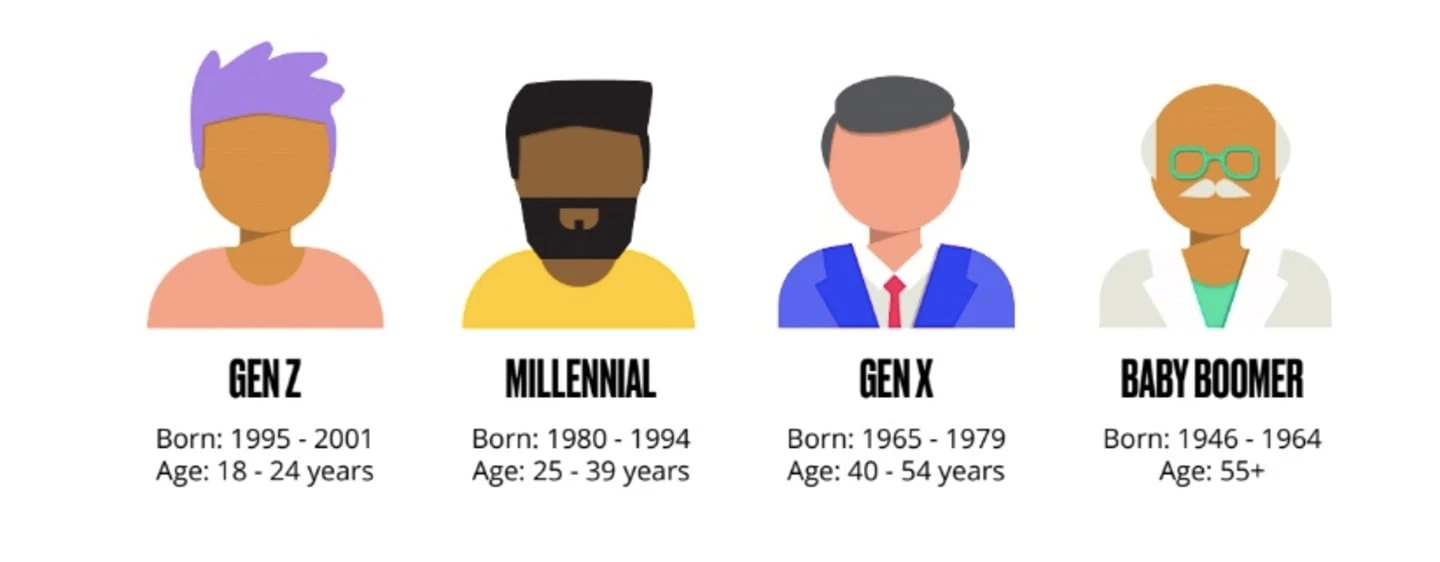
While 2 in 10 Baby Boomers in the U.S. consume plant-based meat at least once a month, more than half of U.S. Gen Z population consume plant-based meat at least once a month.
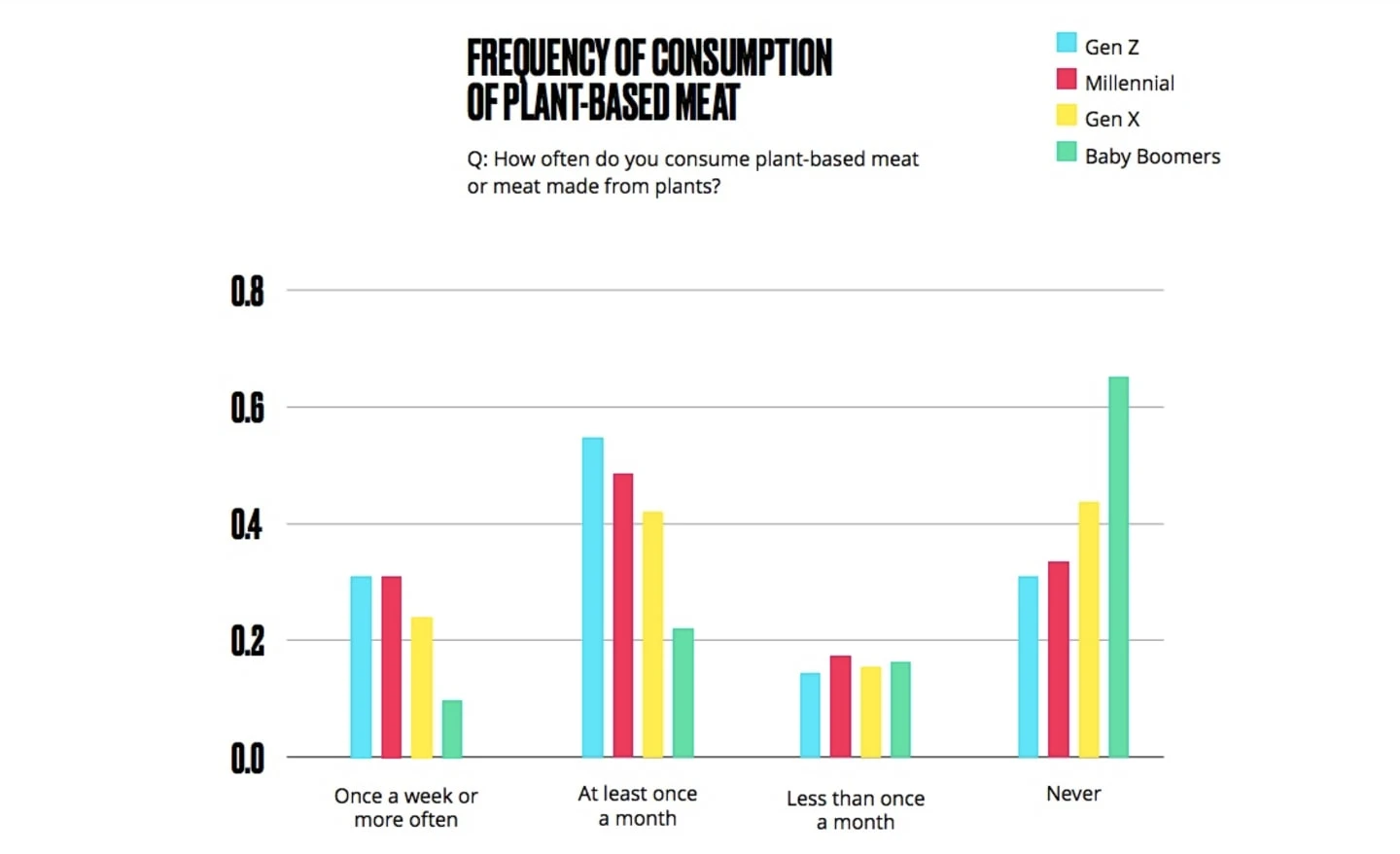
While there are a myriad of reasons for consuming plant-based meats, amongst all consumers the top 3 reasons are:
1. They feel that plant-based options are healthier than animal-based options.
2. They feel generally “better” about what they’re eating.
3. They feel that plant-based options are “better for the environment.”
While these factors are crucial drivers of plant based meat consumption across all the generations, we saw that Gen Z and Millennials are more likely to state “better for the environment” as a reason for consuming plant based meat.
NEW GENERATIONS, NEW TASTES
Millennials are poised to become America’s largest generation – and they’re creating a new model for parenting, profoundly shaping generations after them. Their choices directly influence their children, creating a virtuous circle as more kids develop a taste for plant-based meat.
Millennial parents are consciously introducing more plant-based foods at family meals. Millennials with children are more likely to consume plant-based meats than millennials without children at home: 72% of millennials with kids are consuming plant-based meat more often, vs. 60% of Millennials without kids compared to last year. This shift means increasingly early exposure for the world’s youngest generation – who develop a lifestyle and palate for mindful, plant-based eating much earlier than previous generations.
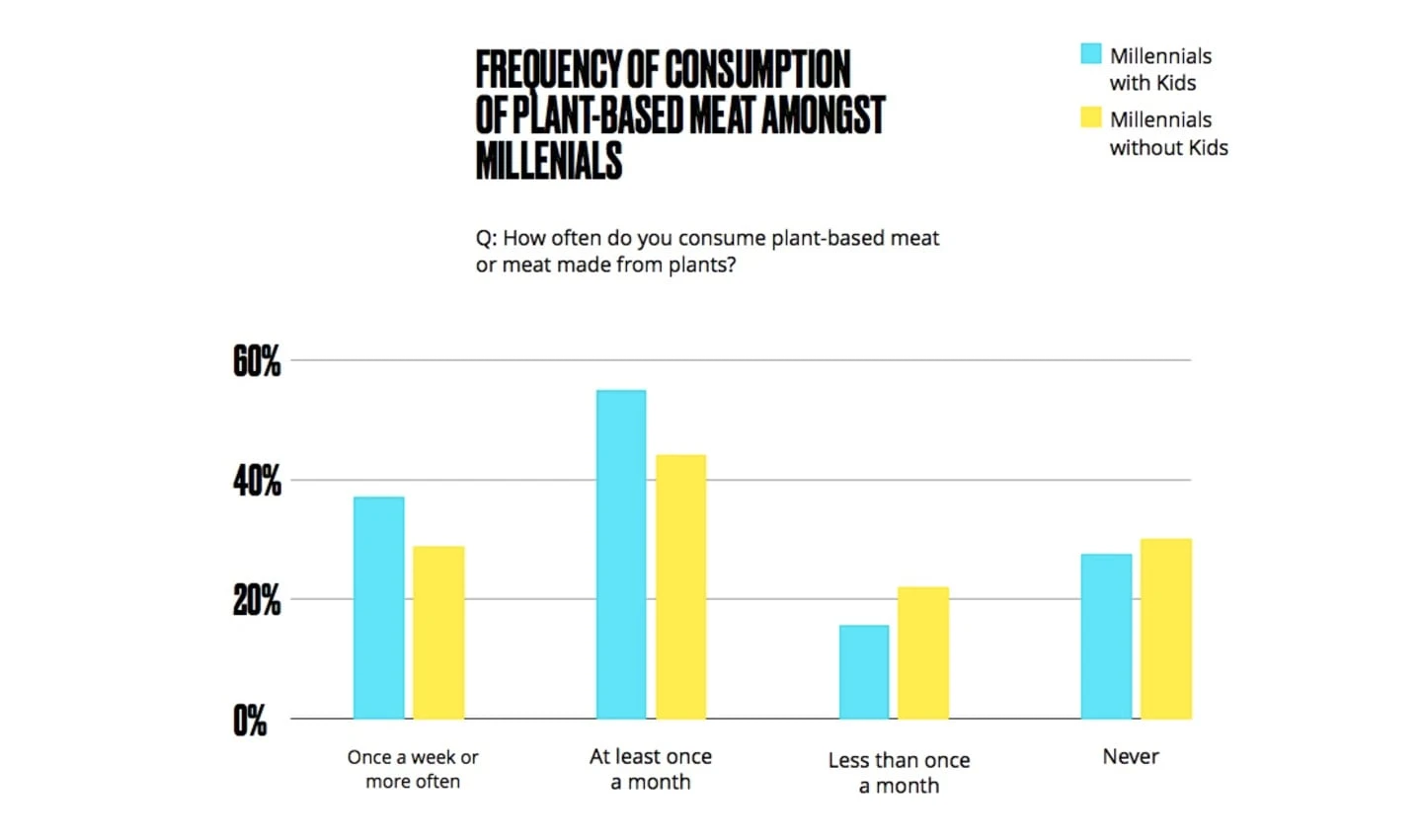
Not coincidentally, Millennial parents are much more likely than older generations to teach their kids about environmental sustainability – specifically the connection between plate and planet.
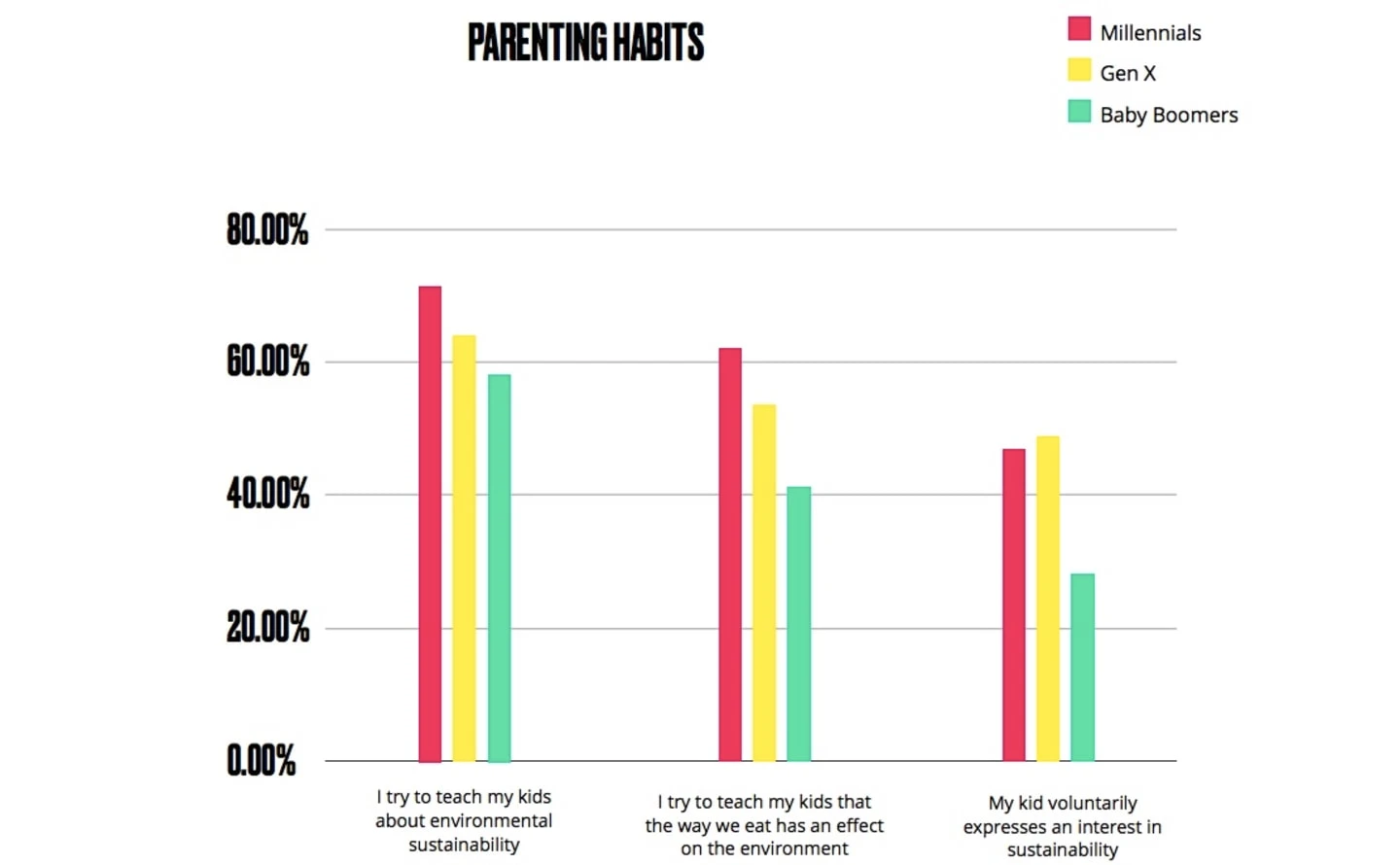
ENVIRONMENTAL MINDSET
Gen Z, as a whole, is more conscious than previous generations of what they eat and how their actions affect their surroundings. A 2016 global study by BBMG and GlobeScan found that the youngest generations (Millennials and Gen X) are much more motivated than older generations to spend their money on sustainable products and services. According to the study, nearly nine in 10 Millennials and Gen Xers say, “I believe we need to consume less to preserve the environment for future generations” (88%), vs 72% of all consumers.
When it comes to values surrounding food, Gen Z is significantly less likely than older generations to believe that meat – whether celebratory steak or Thanksgiving turkey – is a central part of American identity or American culture. In addition, this generation is vastly more aware than the general population that animal agriculture damages the environment. Gen Z values environmental sustainability much more than previous generations, and are willing to spend more on sustainable food.
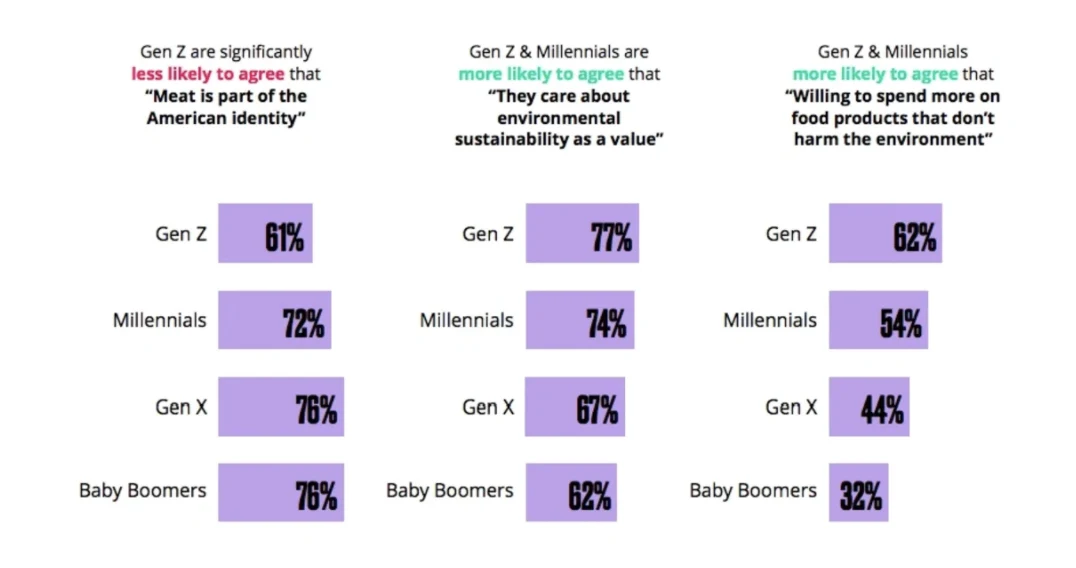
THE KIDS ARE RIGHT
Younger generations are more inclined to view climate change and biodiversity as priorities. They recognize that starving polar bears and razed rainforests mean an impoverished planet – and a terrible quality of life for our own species. They’re fighting to wake the world from its collective passivity and denial of climate change and biodiversity loss.
The Impossible Foods' consumer research team is picking up the same trends we’re seeing on the streets of Paris, Singapore, Jakarta and Stockholm, where students are leading the charge toward a green planet. We’re thrilled that young people are taking their environmental ethos from the protest rally to the dinner table. They give us hope for a planet where biodiversity can flourish and the Earth can begin to heal itself. The kids are right – and as a result, perhaps the planet will be alright after all.
Questions? Comments? Please send to [email protected]